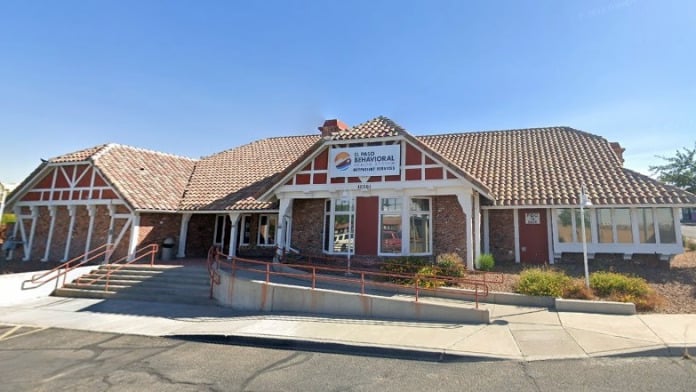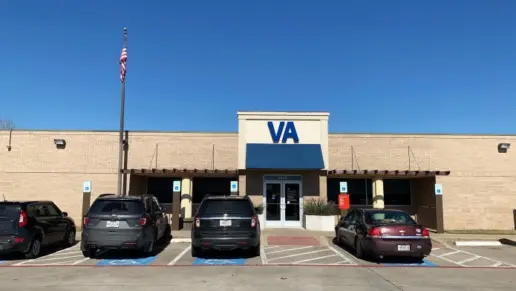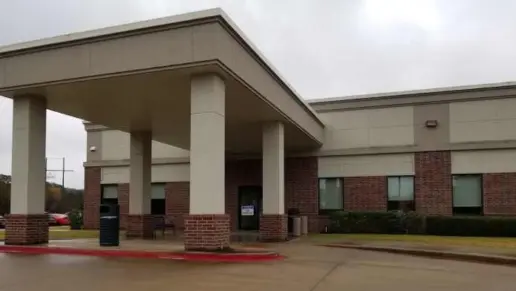About El Paso Behavioral Health – East
If you’re in need of behavioral health or substance use disorder services in El Paso, Texas, the El Paso Behavioral Health System may be a good option for you. They’re accredited by The Joint Commission, and they have treatment programs for dual diagnosis and substance use. They offer inpatient and outpatient treatment for men, women and children.
Many of their staff members are former military. They’ve been specially trained to help military members and their families. Active duty members do need a referral from a military provider, though their family members don’t. The program accepts TRICARE and VA health benefits. They also accept Medicaid, Medicare and most major private insurance.
In addition to treating military members, they also have inpatient behavioral health and substance use programs for children ages five to 17. They partner with the El Paso Independent School District so your child will get education services while attending an inpatient treatment program.
The inpatient program also offers specialty tracks for women and seniors. All of the tracks include 24/7 care. From acute stabilization and detoxification to medication management and recreational activities, you’ll have help and support for serious symptoms relating to substance use and co-occurring disorders.
There are special accommodations if you’re in the LGBTQ community. You’ll have an individual room without a roommate. The clinicians who work with LGBTQ patients have special training to recognize the unique challenges faced by their patients.
The main model of treatment throughout is the 12 Step program. You’ll focus on lifestyle changes that help you abstain from substances so you can maintain a sober lifestyle. You’ll participate in daily therapy as well as therapeutic activities. You’ll have medication management if appropriate and routine consultations with medical providers, therapists and psychiatrists.
Many co-occurring disorders such as anxiety, depression and bipolar disorder are the triggers that lead to substance use. Counseling helps you identify your triggers and teaches you how to get your mental health challenges under control. If your depression is severe and resistant to treatment and you’ve tried all other treatments, they offer electroconvulsive therapy (ECT). ECT has been known to help people with severe forms of depression and other mental health disorders.
Latest Reviews
Rehab Score
Gallery

Location
Other Forms of Payment
Self-pay involves paying for treatment out of your own pocket. You can use savings or credit, get a personal loan, or receive help from family and friends to fund your treatment. If you don't have insurance or your insurance plan doesn't cover a specific program, self-pay can help ensure you still get the care you need.
Private insurance refers to any kind of healthcare coverage that isn't from the state or federal government. This includes individual and family plans offered by an employer or purchased from the Insurance Marketplace. Every plan will have different requirements and out of pocket costs so be sure to get the full details before you start treatment.
Medicaid is a state based program that helps lower-income individuals and families pay for healthcare. Medicaid covers addiction treatment so those enrolled can use their coverage to pay for rehab. When a program accepts Medicaid the client often pays very little or nothing out of their own pocket.
Medicare is a federal program that provides health insurance for those 65 and older. It also serves people under 65 with chronic and disabling health challenges. To use Medicare for addiction treatment you need to find a program that accepts Medicare and is in network with your plan. Out of pocket costs and preauthorization requirements vary, so always check with your provider.
Addiction Treatments
Levels of Care
Treatments
The goal of treatment for alcoholism is abstinence. Those with poor social support, poor motivation, or psychiatric disorders tend to relapse within a few years of treatment. For these people, success is measured by longer periods of abstinence, reduced use of alcohol, better health, and improved social functioning. Recovery and Maintenance are usually based on 12 step programs and AA meetings.
During rehab in Texas, you'll deal with underlying issues that contribute to addiction. By addressing these challenges and learning healthy ways to cope with them, you'll develop strategies that help you live a drug-free lifestyle.
Many of those suffering from addiction also suffer from mental or emotional illnesses like schizophrenia, bipolar disorder, depression, or anxiety disorders. Rehab and other substance abuse facilities treating those with a dual diagnosis or co-occurring disorder administer psychiatric treatment to address the person's mental health issue in addition to drug and alcohol rehabilitation.
A combined mental health and substance abuse rehab has the staff and resources available to handle individuals with both mental health and substance abuse issues. It can be challenging to determine where a specific symptom stems from (a mental health issue or an issue related to substance abuse), so mental health and substance abuse professionals are helpful in detangling symptoms and keeping treatment on track.
Opioid rehabs specialize in supporting those recovering from opioid addiction. They treat those suffering from addiction to illegal opioids like heroin, as well as prescription drugs like oxycodone. These centers typically combine both physical as well as mental and emotional support to help stop addiction. Physical support often includes medical detox and subsequent medical support (including medication), and mental support includes in-depth therapy to address the underlying causes of addiction.
Programs


Clinical Services
Research clearly demonstrates that recovery is far more successful and sustainable when loved ones like family members participate in rehab and substance abuse treatment. Genetic factors may be at play when it comes to drug and alcohol addiction, as well as mental health issues. Family dynamics often play a critical role in addiction triggers, and if properly educated, family members can be a strong source of support when it comes to rehabilitation.
Group therapy is any therapeutic work that happens in a group (not one-on-one). There are a number of different group therapy modalities, including support groups, experiential therapy, psycho-education, and more. Group therapy involves treatment as well as processing interaction between group members.
In individual therapy, a patient meets one-on-one with a trained psychologist or counselor. Therapy is a pivotal part of effective substance abuse treatment, as it often covers root causes of addiction, including challenges faced by the patient in their social, family, and work/school life.
Trauma therapy addresses traumatic incidents from a client's past that are likely affecting their present-day experience. Trauma is often one of the primary triggers and potential causes of addiction, and can stem from child sexual abuse, domestic violence, having a parent with a mental illness, losing one or both parents at a young age, teenage or adult sexual assault, or any number of other factors. The purpose of trauma therapy is to allow a patient to process trauma and move through and past it, with the help of trained and compassionate mental health professionals.
Amenities
-
Private Setting
Accreditations

The Joint Commission, formerly known as JCAHO, is a nonprofit organization that accredits rehab organizations and programs. Founded in 1951, the Joint Commision's mission is to improve the quality of patient care and demonstrating the quality of patient care.
Joint Commission Accreditation: Yes
Contact Information
10501 Gateway Blvd West
#130-140
El Paso, TX 79925


